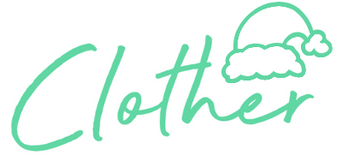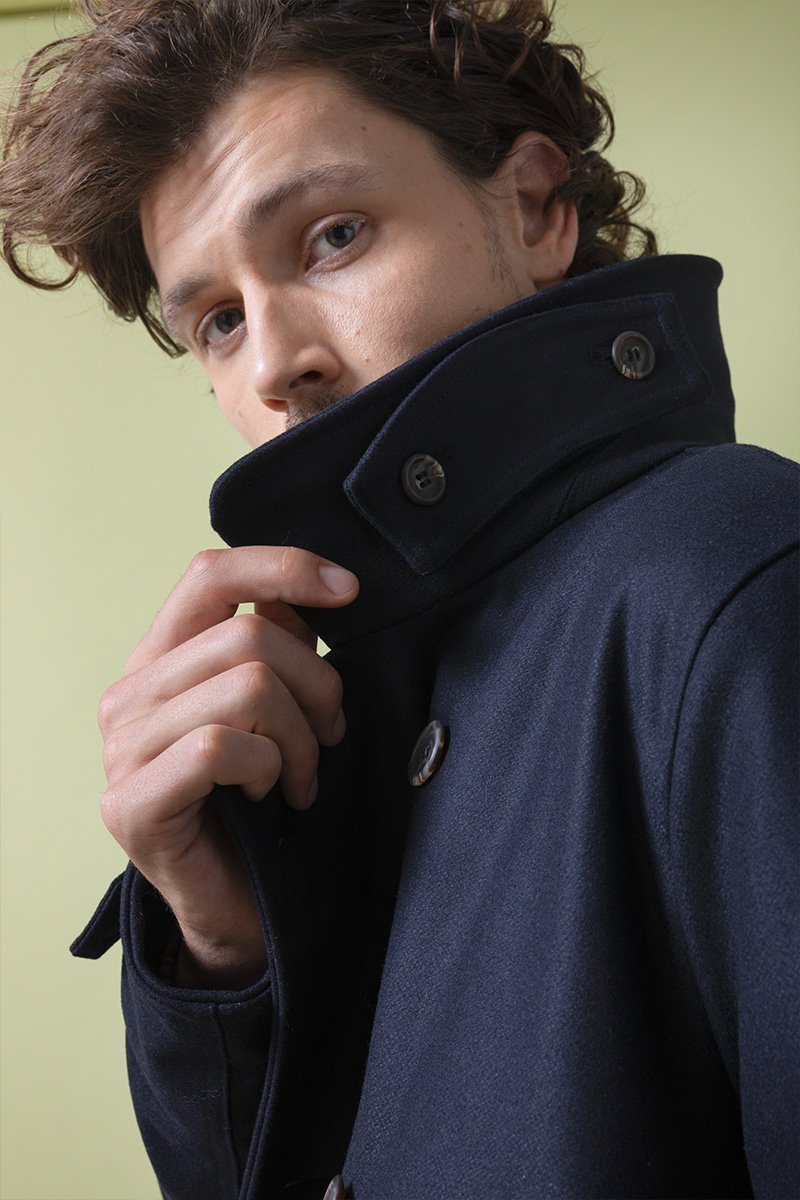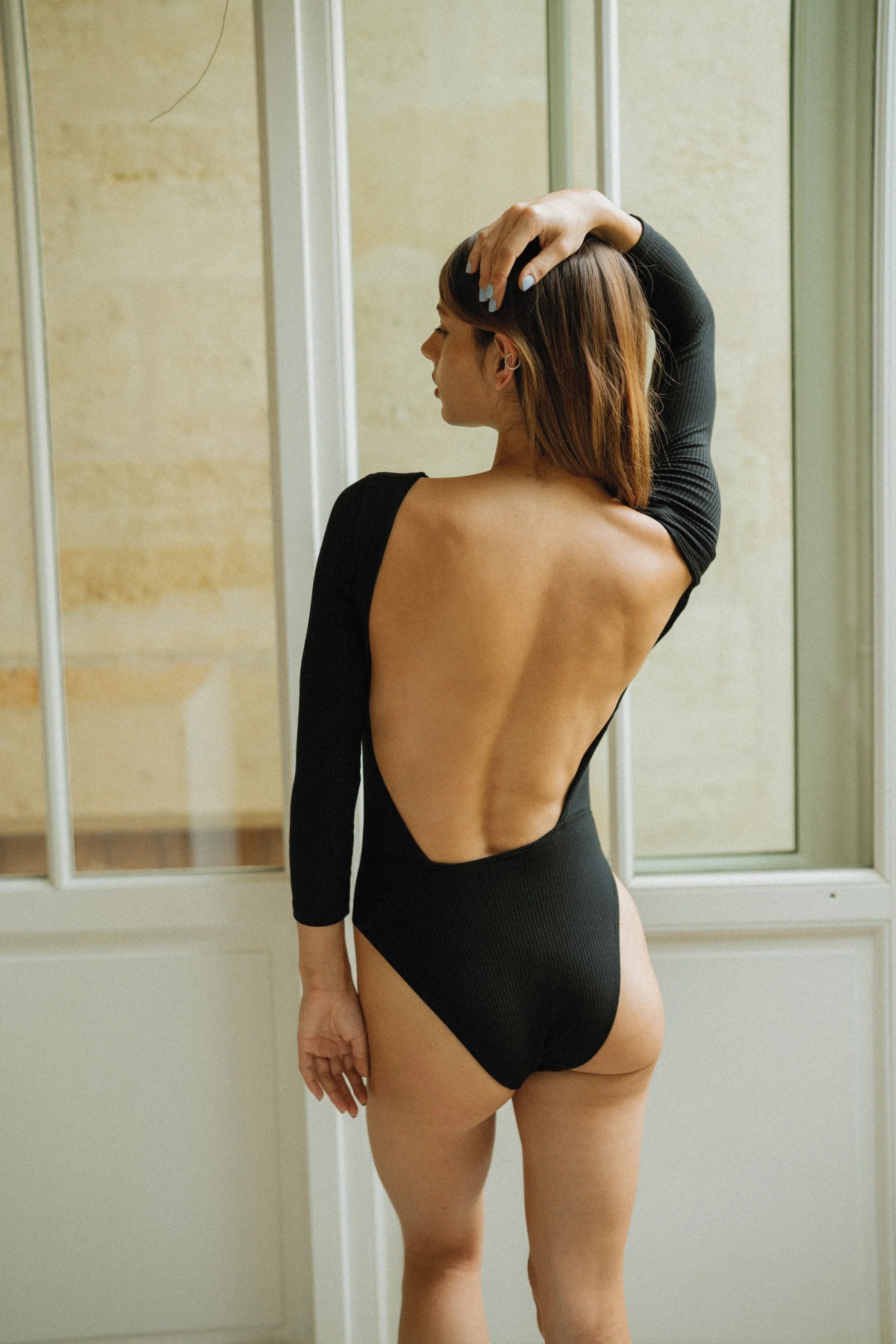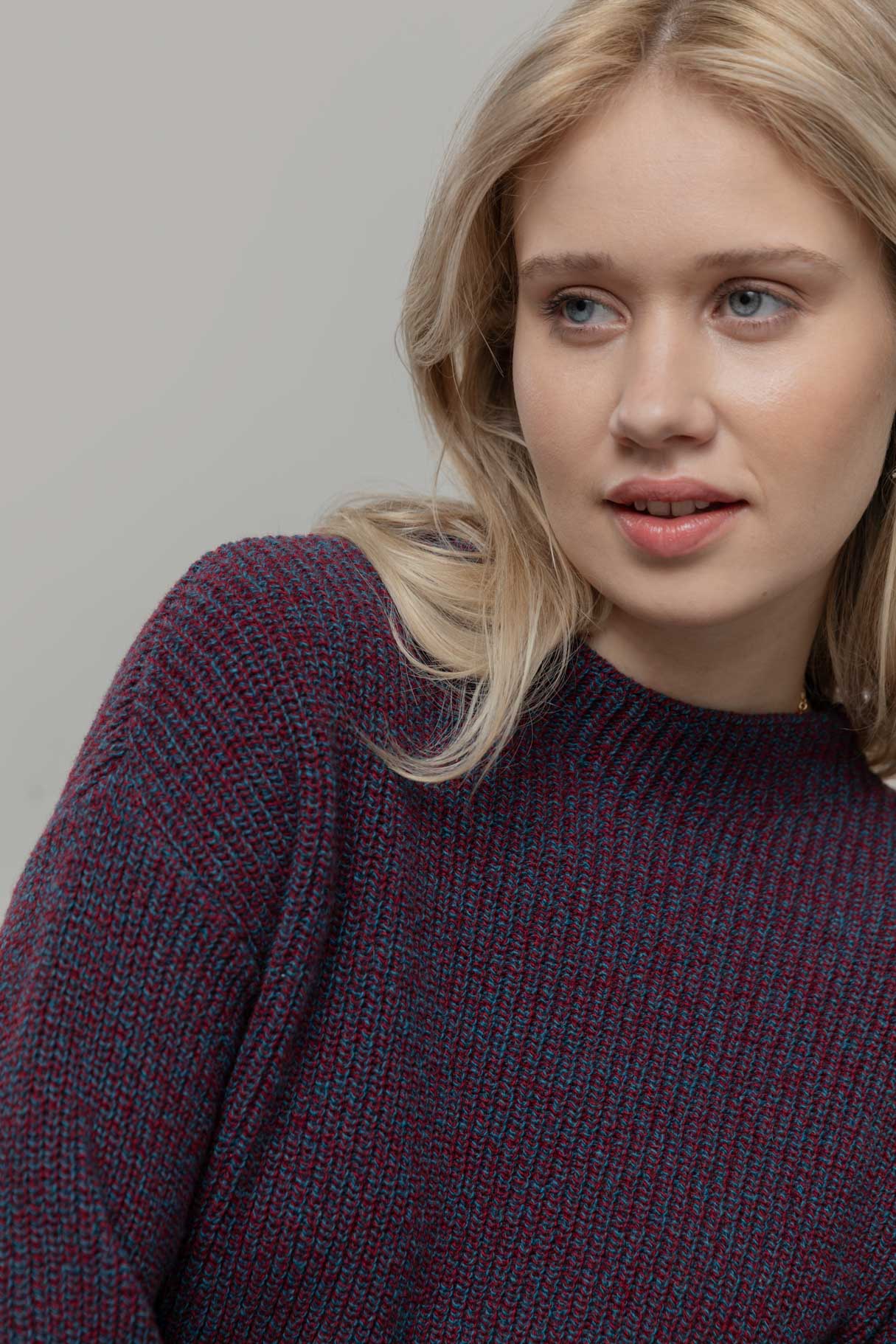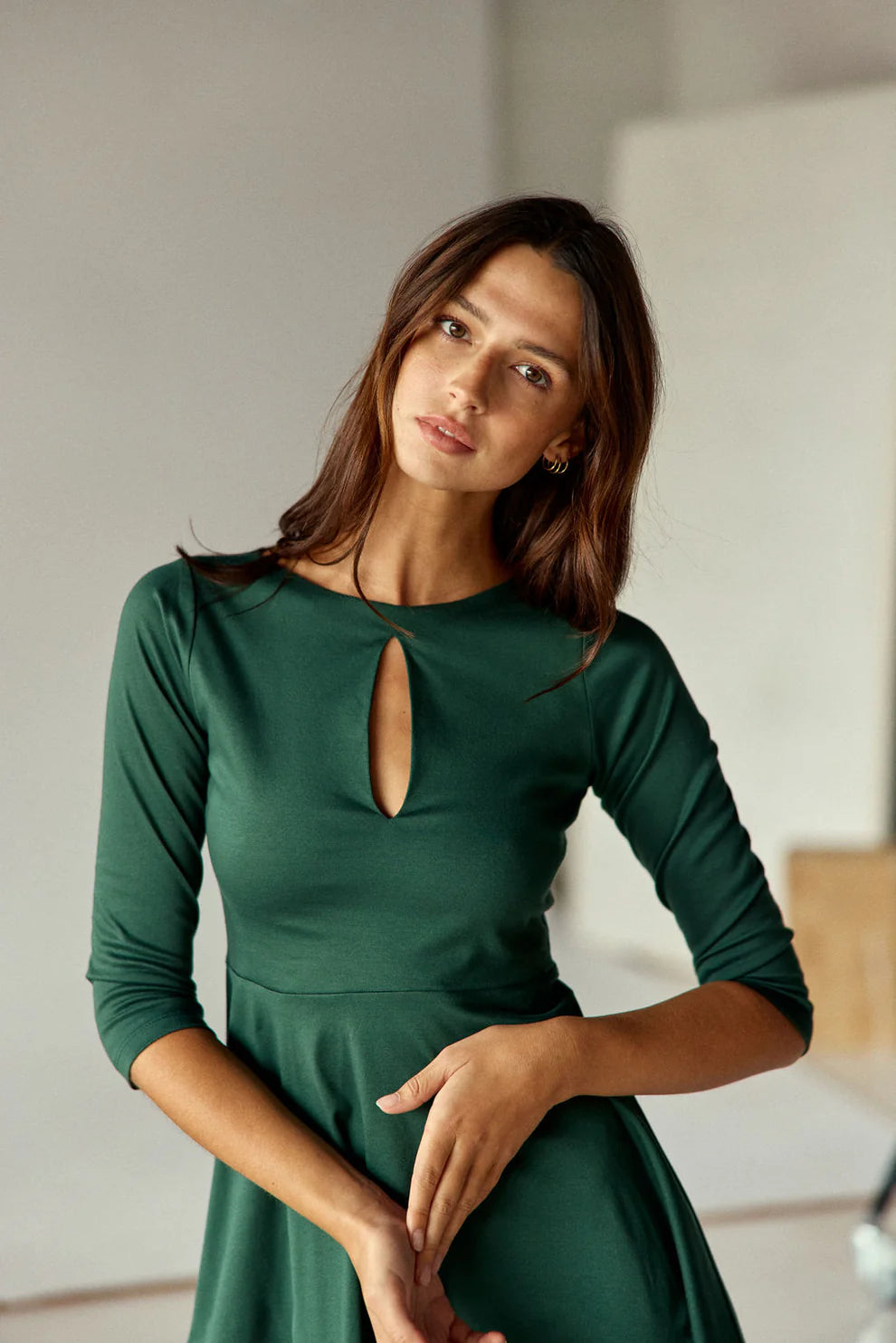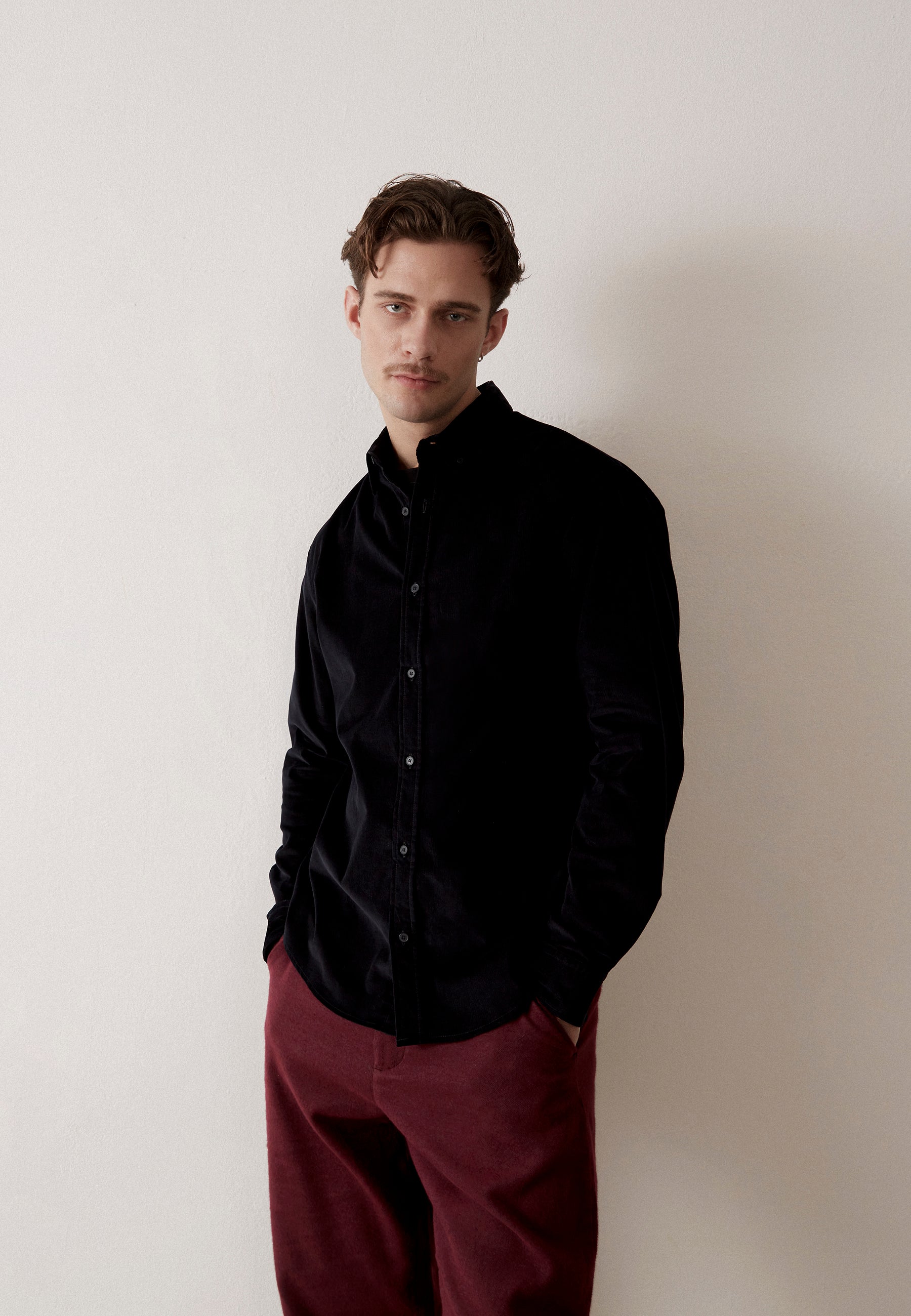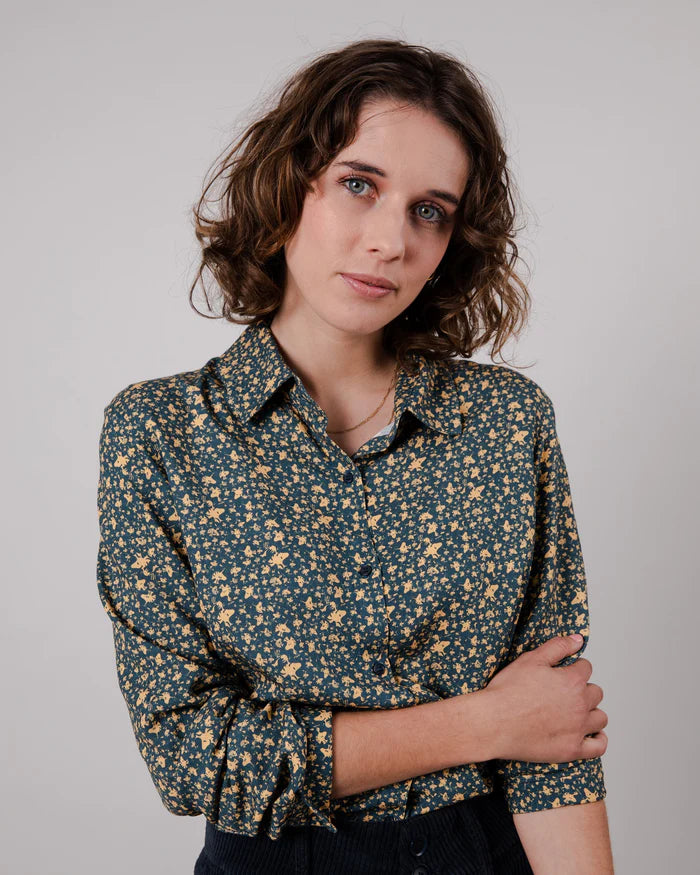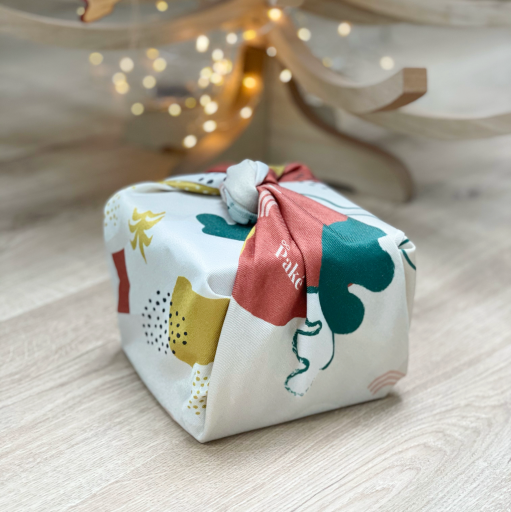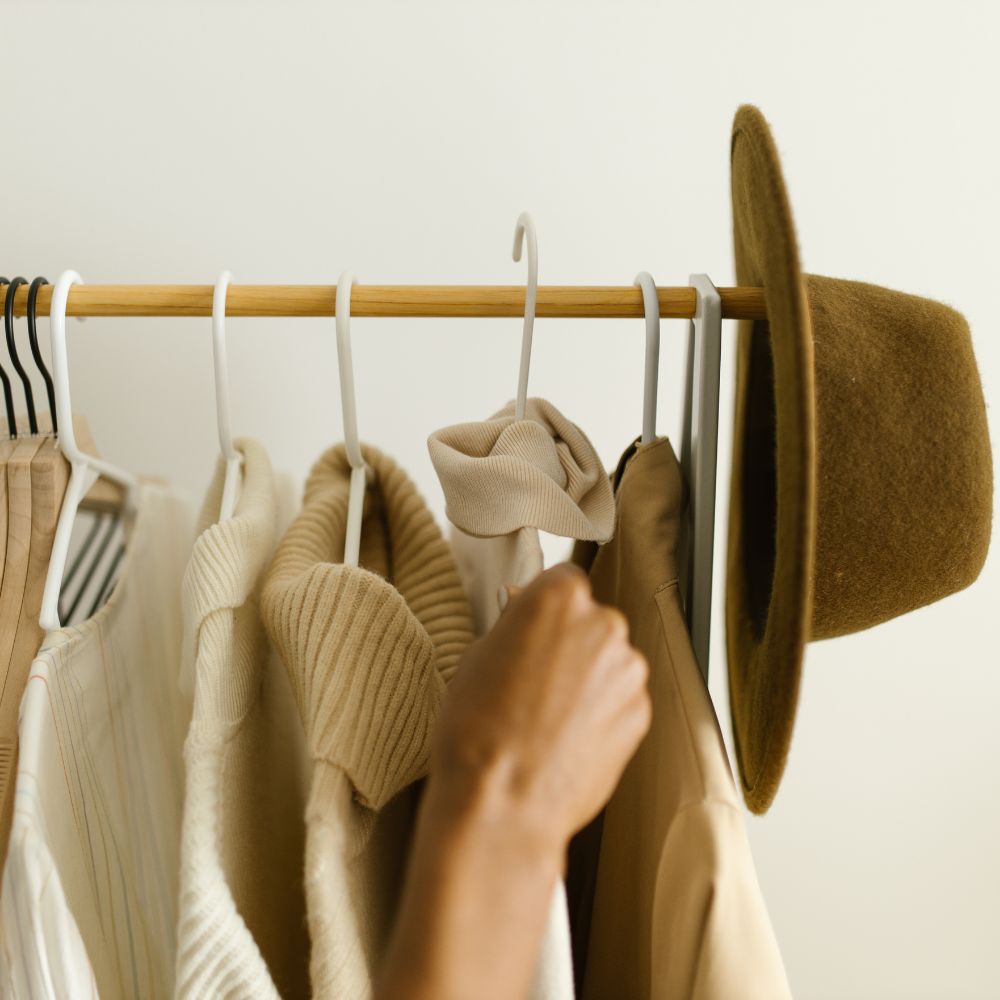Having an eco-responsible wardrobe often starts with knowing what you have in your wardrobe, understanding what you wear, what you keep, and what you need to get rid of. CLOTHER met Marion, from Eazen Home , sorting and organization coach (and former shopping addict). She explains her job, her background, and her advice for organizing your wardrobe.
Hi Marion! To start, could you tell us a little bit about what you do?

I am a Home Organizer, which means “sorting and organization coach”.
I worked for several years in marketing and communications for large companies. When my first child arrived, I realized that I was searching for meaning and freedom. I also realized that with a child, my life would change from a material point of view and that I risked being more cluttered in my daily life. So I started tidying and sorting at home. I was in “I’m going through everything with a fine-tooth comb” mode to find space and optimize my space.
The more I progressed, the more pleasure I had and the lighter I felt.
I wondered if there were jobs related to sorting and storage to bring this well-being to others. And Bingo, Home Organizer! Helping people sort and declutter is great. And I love making people understand that we can consume differently by adopting new habits and therefore limit waste.
So, is everything okay with you? And in your dressing room, tell us how it’s organized? Are you in minimalist mode?
Big question about the dressing room!
No, I'm not a minimalist but everything is thought out and organized and by color of course (my manic side 😊)
All joking aside, clothes are a big subject for me!
I am a former shopping addict, in “I work a lot so I compensate because I’m worth it” mode. My compulsive purchases were mainly clothes, shoes and bags. Honestly, this is the last category I tackled in my sorting.
When I got started, I realized I had 250 pairs of shoes! There I told myself that it was nonsense, all these thoughtless purchases, and above all I realized how much it was costing the planet...if everyone did like me, the horror!
I attacked the sorting! Honestly, when you're sensitive to fashion and you love clothes, it's not easy.
To have the wardrobe I have today, I took steps forward and steps back.
Sometimes I “dive back”, in the sense that I returned to fast fashion to go quickly.
In fact it's all a question of time I think. Take the time to find the right addresses, the right brands... But now, I know where to go to discover slow fashion players!
Now my wardrobe looks like me. It is in my image, of who I am today both in style and in the refined and thoughtful side. Why do I buy or not? Where is that from ?
What do you think a good dressing room looks like?
A “good” wardrobe for me is already a wardrobe that resembles who you are in the present moment.
We only wear 30% of our wardrobe in general, because often there are the souvenir clothes... the ones you would like to get back into, (so the ones that depress you), the "just in case" ones... when do you keep the clothes you wear that suit you? 🙂
70% of our clothes are lying dormant and this is a form of waste.
So for me, a good wardrobe is one that represents our style, our values and our temporality.
It's a wardrobe where I wear everything, the purchases of which are either made with a committed brand or second hand. It's always thoughtful and sometimes it takes me a long time to find "the trick" but too bad... I want to say that it teaches me to be patient.
We are in the “Fast” era, we do everything quickly and the economic world has adapted to make everything available to us quickly, and long live over-consumption!
Personally, I'm coming back to grandma's lifestyle and I'm taking more time, at least for my purchases.

“Yes, but clothes from committed brands are expensive, you can afford them! »
Aaaah yes I love this sentence!
Well, I’m an entrepreneur so I’m not in “no limit” mode. So when I buy, it’s an investment! Basically, I buy a nice piece here and there but not all the time and so it lasts me. That's the principle.
And I fix it! I took up sewing or when I don't have time I hire a seamstress.
You said you have children, do you do the same for them too?
What is the relationship between storage and ethical dressing ultimately?
When we have sorted and well organized we know what we have and that avoids having to simply repurchase or in the other direction, when we go to buy clothes we know what we need and that's it.
For example, I recently gave away a pair of jeans that I no longer wore, and since I don't have many I'm going to buy one, but above all one of quality .
For me, the golden rule is also “In & Out”: what comes in comes out, and if I make a less thoughtful “pleasure” purchase I try to give in return.
What, in your opinion, makes people move towards mass consumption rather than an ethical approach?
The weather !
For me it all starts from there! We act quickly, we go to town, we buy lots of clothes, we think we have activated the “happiness” box. It’s almost “robotic”.
Then there are unconscious purchases driven by marketing, emotional purchases… in short, after that we enter into another discussion.
If you had to give us practical advice, what steps should we take for a more eco-responsible wardrobe?
- Avoid buying too much! Try to question your purchases. Do I really need it? Is it possible to do with what I already have?
- Think second-hand network or rental , for truly exceptional clothing you can rent or even borrow.
- Buy more durable goods. Buy less but better! take the time to find brands that are committed! Your gesture will have so much more meaning and giving meaning to what we do is our essence!
- Maintain your property and respect it
- Avoid renewing too often : Fashion effects, advertisements, promotional offers... The incentives to buy more and more are everywhere. Resisting temptation is not easy, but is it necessary?
